Top Rankings
Fremont County School District #21 ranks among the top 20% of public school district in Wyoming for:
Category
Attribute
Student Attention
Lowest student:teacher ratio (Top 1%)
For the 2025 school year, there is 1 public elementary school serving 260 students in Fremont County School District #21. This district's average elementary testing ranking is 1/10, which is in the bottom 50% of public elementary schools in Wyoming.
Public Elementary School in Fremont County School District #21 have an average math proficiency score of 12% (versus the Wyoming public elementary school average of 51%), and reading proficiency score of 12% (versus the 54% statewide average).
Minority enrollment is 99% of the student body (majority American Indian), which is more than the Wyoming public elementary school average of 24% (majority Hispanic).
Overview
This School District
This State (WY)
# Schools
3 Schools
261 Schools
# Students
409 Students
56,758 Students
# Teachers
60 Teachers
4,925 Teachers
Student : Teacher Ratio
7:1
7:1
District Rank
Fremont County School District #21, which is ranked within the bottom 50% of all 48 school districts in Wyoming (based off of combined math and reading proficiency testing data) for the 2021-2022 school year.
The school district's graduation rate of 21-39% has decreased from 40-59% over five school years.
Overall District Rank
#46 out of 48 school districts
(Bottom 50%)
(Bottom 50%)
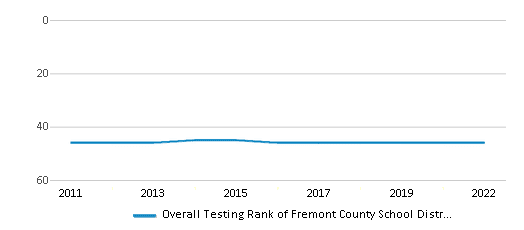
Math Test Scores (% Proficient)
5%
48%
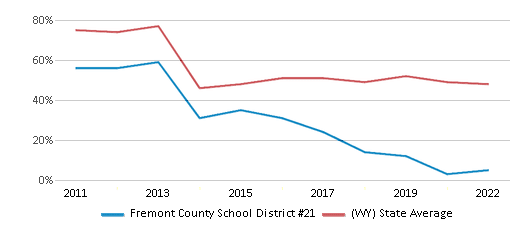
Reading/Language Arts Test Scores (% Proficient)
14%
53%
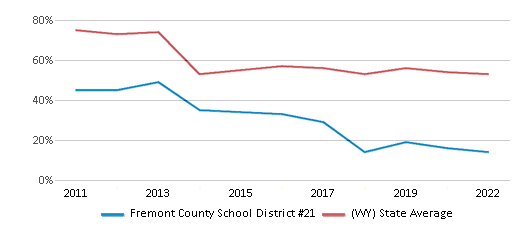
Science Test Scores (% Proficient)
6-9%
47%
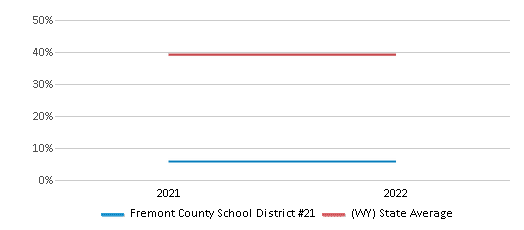
Graduation Rate
21-39%
82%
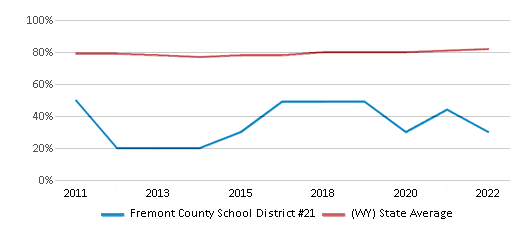
Students by Ethnicity:
Diversity Score
0.07
0.40
# American Indian Students
395 Students
2,069 Students
% American Indian Students
97%
4%
# Asian Students
n/a
309 Students
% Asian Students
n/a
1%
# Hispanic Students
5 Students
8,166 Students
% Hispanic Students
1%
14%
# Black Students
1 Student
445 Students
% Black Students
n/a
1%
# White Students
4 Students
43,347 Students
% White Students
1%
76%
# Hawaiian Students
1 Student
87 Students
% Hawaiian Students
n/a
n/a
# Two or more races Students
3 Students
2,335 Students
% of Two or more races Students
1%
4%
Students by Grade:
# Students in PK Grade:
23
676
# Students in K Grade:
34
6,432
# Students in 1st Grade:
31
6,355
# Students in 2nd Grade:
35
6,724
# Students in 3rd Grade:
29
6,694
# Students in 4th Grade:
32
6,832
# Students in 5th Grade:
40
6,980
# Students in 6th Grade:
36
6,917
# Students in 7th Grade:
31
4,295
# Students in 8th Grade:
31
4,336
# Students in 9th Grade:
25
100
# Students in 10th Grade:
28
169
# Students in 11th Grade:
23
134
# Students in 12th Grade:
11
114
# Ungraded Students:
-
-
District Revenue and Spending
The revenue/student of $55,176 is higher than the state median of $21,219. The school district revenue/student has grown by 13% over four school years.
The school district's spending/student of $54,447 is higher than the state median of $20,493. The school district spending/student has grown by 13% over four school years.
Total Revenue
$23 MM
$1,932 MM
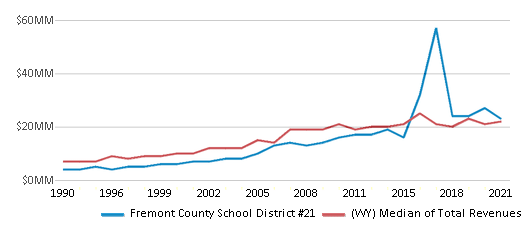
Spending
$22 MM
$1,866 MM
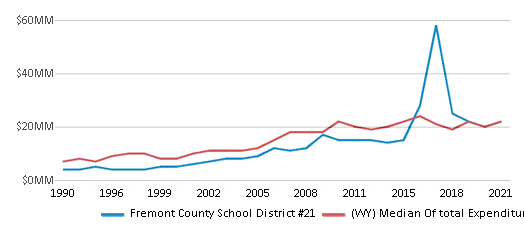
Revenue / Student
$55,176
$21,219
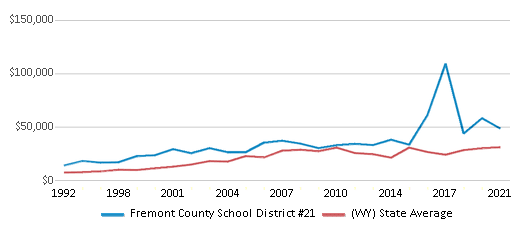
Spending / Student
$54,447
$20,493
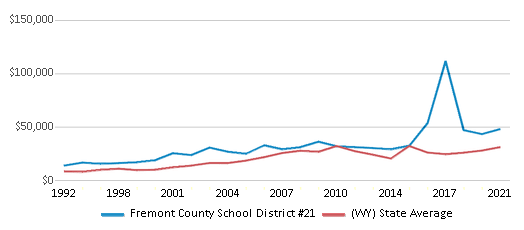
Best Fremont County School District #21 Public Elementary Schools (2025)
School
(Math and Reading Proficiency)
(Math and Reading Proficiency)
Location
Grades
Students
Rank: #11.
Ft. Washakie Elementary School
(Math: 10-14% | Reading: 10-14%)
Rank:
Rank:
1/
Bottom 50%10
90 Ethete Road
Fort Washakie, WY 82514
(307) 332-2380
Fort Washakie, WY 82514
(307) 332-2380
Grades: PK-6
| 260 students
Recent Articles

Year-Round Or Traditional Schedule?
Which is more appropriate for your child? A year-round attendance schedule or traditional schedule? We look at the pros and cons.

Why You Should Encourage Your Child to Join a Sports Team
Participating in team sports has a great many benefits for children, there is no doubt. In this article you will learn what those benefits are.

White Students are Now the Minority in U.S. Public Schools
Increasing birth rates among immigrant families from Asia and Central and South America, combined with lower birth rates among white families, means that for the first time in history, public school students in the United States are majority-minority. This shift in demographics poses difficulties for schools as they work to accommodate children of varying language abilities and socio-economic backgrounds.





